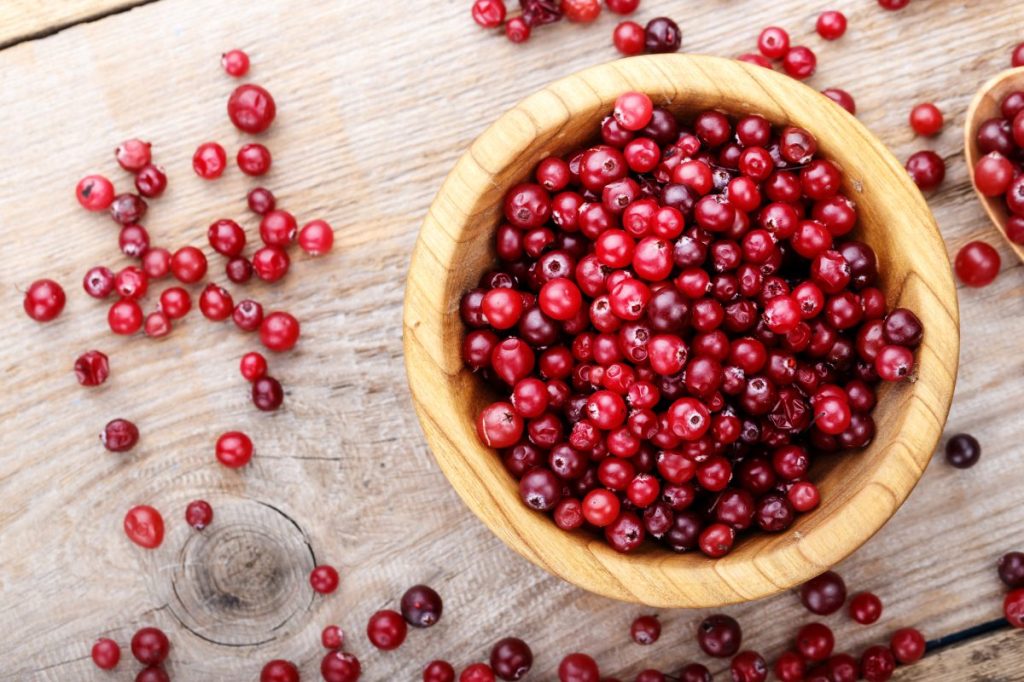
Can dogs eat cranberries? The short answer is yes, cranberries, are safe to eat for dogs. They are not toxic, unlike a very close alternative, raisins. However, how you dish them up for your dog matters.
So, if you’re in the process of preparing your Thanksgiving or Christmas feast, don’t be afraid to set some cranberries aside for your pup. Just be sure to read more about how to safely serve this nutritional powerhouse to your dog. Here are a few things to keep in mind.
Are cranberries good for dogs?
These tiny fruits can provide your dogs with benefits like a high dose of vitamin C, potassium, and fiber. A little extra fiber in your dog’s diet means they’ll stay regular. It also means their stomachs will feel fuller, keeping them from begging for table scraps during your holiday get-together.
Cranberries also contain vitamins E, K, B1, and B2. In addition, this berry has Manganese and Copper. Perhaps best of all, they have low caloric content and boast properties that battle inflammation, like being high in quercetin.
For pups struggling with kidney issues, cranberries could provide some relief. The superfood has high levels of proanthocyanidins (PACs).
What’s more, cranberries reduce tartar and plaque buildup, improve bladder health, and lower risks of gastrointestinal diseases.

Are cranberries bad for dogs?
It’s tempting to share your leftover cranberry sauce and desserts with your dog so they can bask in the holiday spirit. However, as a responsible pet parent, the first thing to ask is whether this would be a safe move. Hidden sugars and other ingredients can pose a danger to your pup. As always, you should ask your vet before sharing any human foods with your dog, especially if you’re unsure about certain ingredients. The same is true if your dog has any specific health conditions that could make certain foods less agreeable with their digestive systems.
How much cranberry can I give my dog?
The key to letting your pup enjoy cranberries without complications is to feed them cranberries in moderation. As with any other treat, overeating cranberries comes with risks.
You should also stick to raw or natural cranberries that don’t contain unnecessary added ingredients.
Can I give my dog cranberry for a UTI?
Dr. Marie Haynes, a veterinarian, warns about the misconception of cranberries being the perfect super food to treat your dog’s urinary tract infection. “Don’t be trying to treat a UTI with cranberries — it won’t work. Cranberries contain a substance that helps to prevent E. Coli bacteria from attaching to the bladder wall, but not all infections are caused by E. Coli,” she says.
Haynes added that overfeeding can also lead to your dog developing calcium oxalate stones in their bladder. This is especially the case for eating large amounts of cranberries every day.
How to safely feed your dog cranberries

Instead of making it a regular part of your dog’s diet, why not make cranberries into a nice treat? Since they’re a nice alternative to raisins, you can give your dog the healthier option of raw or cooked cranberries.
Dried cranberries are also an option but avoid the sugary variants. Don’t share your leftover cranberry sauce or cranberry juice, as they may contain additional ingredients that aren’t good for your dog’s health. Avoid feeding your dog craisins or cranberry raisins for the same reason. In particular, can jellied cranberry sauce is high in sugar and dogs can’t process that the same way humans can. It could cause a number of health issues for your pup, including pancreatitis.
Some ways to spice up your treat-giving would be to add some of your dog’s food on top. You can also create a cranberry shortbread treat that’s just for your dog, and there are some treats that are already infused with cranberries. These are perfect as a regular treat without the danger of giving a large dosage of the bad ingredients in the process of trying to give your pup a little something healthy and fun this holiday season.
Related Articles:
The post Can Dogs Eat Cranberries? Is Cranberry Safe for Dogs? appeared first on DogTime.
